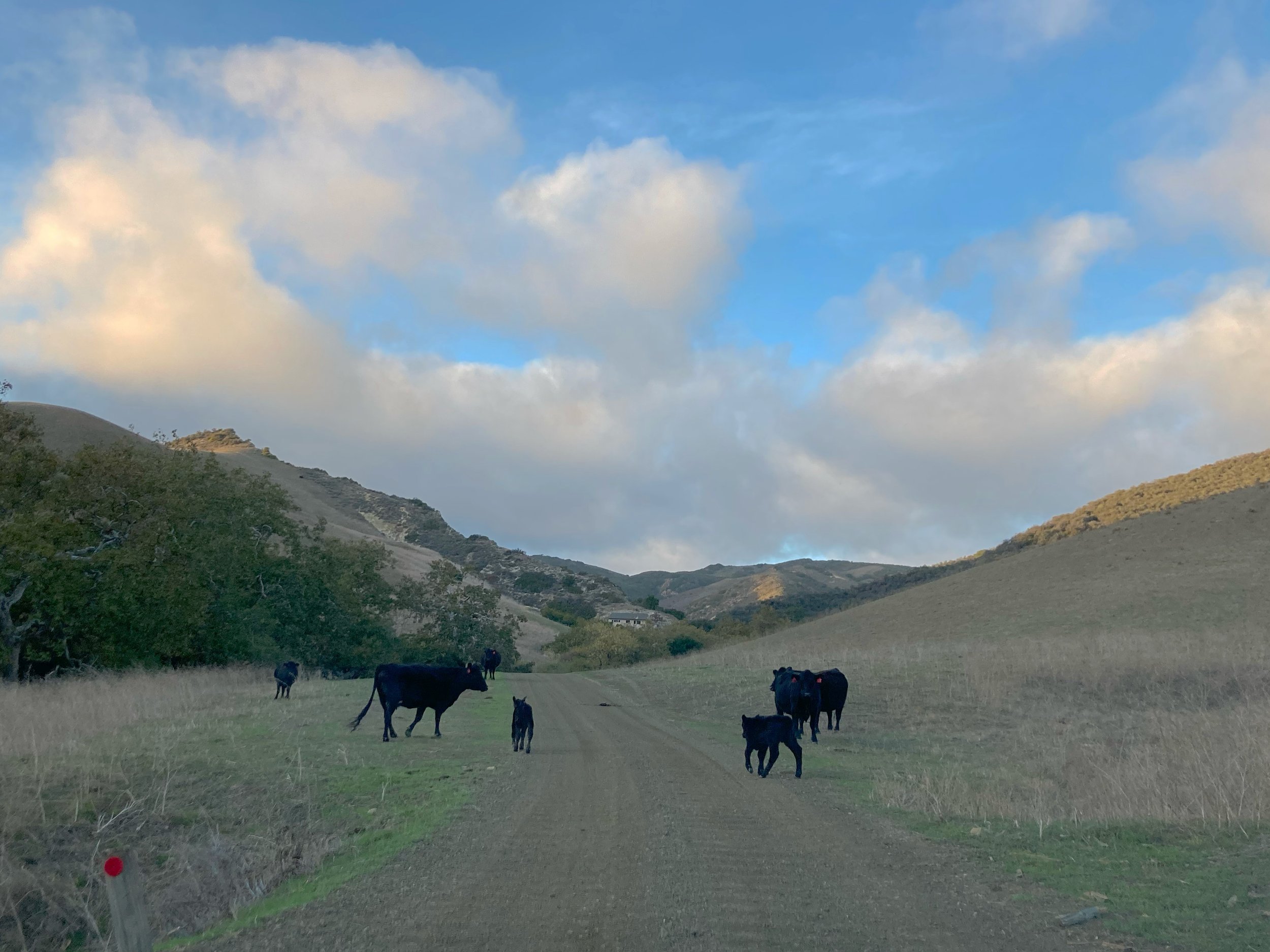Joy
There are new calves in the canyon, a bat clinging to a stucco wall, a bobcat crouching by the fence stalking gophers. My neighbor asked if I heard the scream of a mountain lion in the night, but I only heard coyotes and the muffled rumble of a train. Meanwhile, the fog is doing seductive veiled dances with the hilltops, toyon berries are beginning to emerge, and green husked macadamias adorn the trees.
I was a churchy child in my younger days, mostly because my best friend invited me to join her at the Methodist Church, where I attended Sunday school classes, sang in the children’s choir wearing a robe and silky cap, and sat through boring sermons in the perfumed sanctuary, distracted by slanted light through stained glass windows and the astonishing array of millinery on the heads of the women in the pews. (It was a time when hats sprouted flowers and birds and brightly colored ribbons, like little declarations that spring would soon arrive.) I liked those Methodists––they were affirmative, constructive potluck people, with a good sense of community, though I doubt that I could have articulated this at the time. But church was not so much a spiritual experience as a social one, and sermons were meant only to be endured.
Until, one day, a guest pastor spoke with unusual passion and exuberance about gratitude and joy. I remember the word joy. I inhabited joy on a regular basis, but now all at once I recognized the feeling and knew what to call it. And I felt very thankful indeed. At the end of the service, I waited in line along with the grown-ups to shake hands with the minister and tell him that I had appreciated his message. It was hard for me to overcome my shyness, but I wanted to let him know. He patted me on the head and noted that I was still wearing my little choir beanie. “I bet you didn’t know you have this on,” he said, and nothing more. I felt silly and embarrassed, pulled it off and stuffed it into my pocket, and hurried out into the streets of the city, where joy was happening everywhere, unobserved.
It’s one of those random things washed up on memory’s shore, and I don’t know what its significance is, other than being another minor bump along the way to growing up, a journey both wondrous and awkward. But if it bequeathed to me the term “joy” and a keener recognition of the experience, it’s important. And if it also rendered me timid about expressing my sentiments, that’s fine too, because I have long overcome this. Reluctance to express gratitude, joy, and affection is not an issue of mine, and it seems the more I speak of these things, the wider their flight.
In recent years, my innate joy has become tainted with guilt, incongruously weighted with awareness of concurrent suffering everywhere. I’ve written of it often. Even the miracles of nature are infused with a sense of endings drawing near, and I have had to convince myself that partaking of the gifts fortifies the spirit and thus makes better outcomes more likely. And I practice my trick: I let myself be happy for a moment. It’s okay to bake a cake, go for a walk, return renewed and do your best. It works. The joy sustains us.
And the world is my church. I go there daily.
